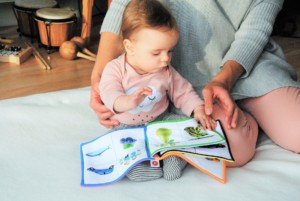Are you concerned about your child’s speech or language? As a parent or caregiver, you know your child. If you sense there is something just not right, it is important to voice your concerns.
“You know your child best. You don’t have to wait and see if you think there might be a problem. And you don’t have to guess if your child will catch up. You can have your child seen by a speech-language pathologist, or SLP. The SLP will talk to you about your concerns and test how well your child understands, speaks, and uses gestures,” ASHA.
 As a general rule, at 6 months old – should be babbling, nine months old – they should be combining different sounds, word like vocalizations. At a year old – a child should be using single words and combining words at 18 months. Toddlers at age 2 – can understand simple questions and language, as well as using 2 to 3 word phrases. At three years old a child is following two step directions, telling short stories, saying three word phrases.
As a general rule, at 6 months old – should be babbling, nine months old – they should be combining different sounds, word like vocalizations. At a year old – a child should be using single words and combining words at 18 months. Toddlers at age 2 – can understand simple questions and language, as well as using 2 to 3 word phrases. At three years old a child is following two step directions, telling short stories, saying three word phrases.
“You know your child. You understand what he means when he points to the door. You listen to her talk and watch her play. You remember what your older children did and said at the same age. It is normal to compare your child to other children. It is also normal to worry if you think your child is not keeping up. But what if they aren’t? You may think things like I’d feel guilty waiting only to find out that I should have done something sooner.”
Early detection is key
The leading barrier to speech and language problems is lack of awareness. Over 60 percent of parents polled said they were not familiar with the common warning signs. Over half the parents were not aware the importance of early detection. Preferably, before the age of 4. If not the treatment can take longer, be more complex, and cost more.
Instead of worrying about your child’s speech or language, contact First Words Therapy and have any signs checked out.


